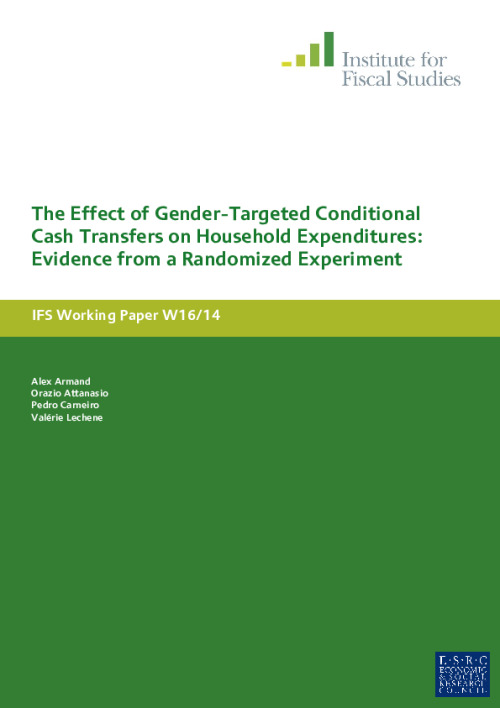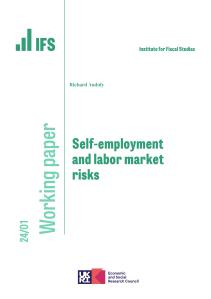Downloads

WP201614.pdf
PDF | 2.31 MB
This paper studies the differential effect of targeting cash transfers to men or women on the structure of household expenditures on non-durables. We study a policy intervention in the Republic of Macedonia, offering cash transfers to poor households, conditional on having their children attending secondary school. The recipient of the transfer is randomized across municipalities to be either the household head or the mother. Using data collected to evaluate the conditional cash transfer program, we show that the gender of the recipient has an effect on the structure of expenditure shares. Targeting transfers to women increases the expenditure share on food by about 4 to 5%. To study the allocation of expenditures within the food basket, we estimate a demand system for food and we find that targeting payments to mothers induces, for different food categories, not only a significant intercept shift, but also a change in the slope of the Engel curve.
Authors

CPP Co-Director
Orazio is an International Research Fellow at the IFS, a Professor at Yale and a Research Associate at the National Bureau of Economic Research.

Research Fellow University College London
Pedro is a Professor of Economics at University College London and an economist in the IFS' Centre for Microdata Methods and Practice (cemmap).

Research Fellow University College London
Valerie, a Research Fellow of the IFS, is a Reader at the University College London, whose research is focused on modelling intra-household behaviour.

Research Fellow Nova School of Business and Economics
Alex is an IFS Research Fellow, an Associate Professor at Nova School of Business and Economics and a Research Affiliate at the CEPR.
Working Paper details
- DOI
- 10.1920/wp.ifs.2016.1614
- Publisher
- Insitute for Fiscal Studies
Suggested citation
Armand, A et al. (2016). The effect of gender-targeted conditional cash transfers on household expenditures: Evidence from a randomized experiment. London: Insitute for Fiscal Studies. Available at: https://ifs.org.uk/publications/effect-gender-targeted-conditional-cash-transfers-household-expenditures-evidence (accessed: 3 May 2024).
More from IFS
Understand this issue

Sure Start achieved its aims, then we threw it away
15 April 2024

Retirement is not always a choice that workers can afford to make
6 November 2023

When and why should we care about inequality?
9 August 2023
Policy analysis

Distributional analysis of Ghana’s tax system
18 December 2023

Living standards since the last election
21 March 2024

Housing costs and income inequality in the UK
17 November 2023
Academic research

Police infrastructure, police performance, and crime: Evidence from austerity cuts
24 April 2024

Saving by buying ahead: stockpiling in response to lump-sum payments
2 February 2024

Self-employment and labor market risks
9 January 2024